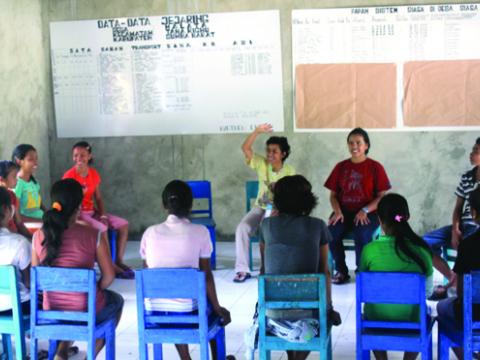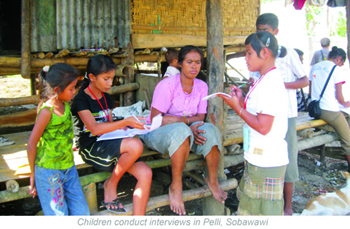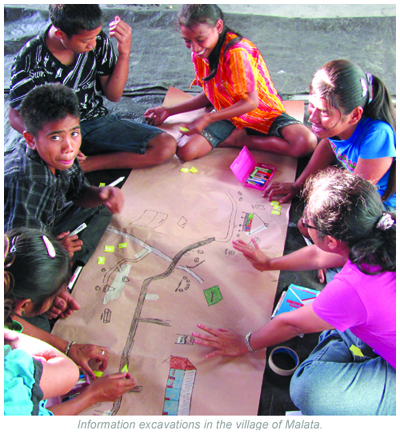What do children know?

"You are just a child, what do you know?" said Maria Goreti, 16, imitating what parents often say to their children.
She made the statement when she and her colleague, Niga, talked about their research on Child Rights issues in Sobawawi and Malata Village, back on 9 August 2012. They showed that children can do positive things.
In the West Sumba Area Development Program (ADP), children from two villages of Malata and Sobawawi were trained how to do simple research. Following the training, they conducted research during 2011 and shared the results with several institutions in 2012.
From their research, the children discovered that many children did not continue their schooling because their parents were not willing to allocate their money to buy books and uniforms to support their education.
"Unfortunately, for a funeral ceremony, parents are willing to borrow money to buy a cow [to support the mourning family]," said Maria.
During their research, they also found out that many children were forced to get married at an early age so that their parents could get the dowry to pay debts they took for the local customs and tradition practices.
Maria and Niga said that children faced complex problems from various sectors, including from the lavish traditional practices. However, they believed that the effective step to resolve the problems was by letting the children voice their opinions.
Niga explained that the research process that they learned helped the research team dare to speak, ask, and analyze.
"It helped us learn about children's problems in our area," Niga explained.
Maria and Niga received applause in the meeting which was attended by Head of West Sumba District - Jubilate Pieter Pandango, Head of West Sumba Parliament - Samuel Kaha Heo, West Sumba District Secretary Umbu - Dingu Dedi, and other local leaders and representatives of local Non Governmental Organizations.
"I thank the non-governmental organization that has trained these children and I believe that other children from other schools may be able to do similar research," said Jubilate Pieter Pandango.
"My children, you have been able to be people's representatives," Samuel praised the children, hoping that similar research be held in other villages.
Following that meeting, local leaders agreed to involve children in their annual development plan meeting for 2013.
In January 2013, 17 high school students were involved in such a meeting. It was a very good start for the government to include children's perspective in development planning at the village and sub-district level. It encouraged the children to be more confident in expressing their opinions.
The most profound impacts from the chains of events were shown on March 2013, when East Nusa Tenggara Governor, Frans Lebu Raya, made an official letter to all district heads. Through the letter, he encouraged district heads to use the District Development Plan process to make an integrated plan for the fulfillment of child rights.
* Written by Margareta Sagala, staff of Wahana Visi Indonesia, Sumba Barat operational Office | Translated by Bartolomeus Marsudihardjo, Field Communications World Vision Indonesia

